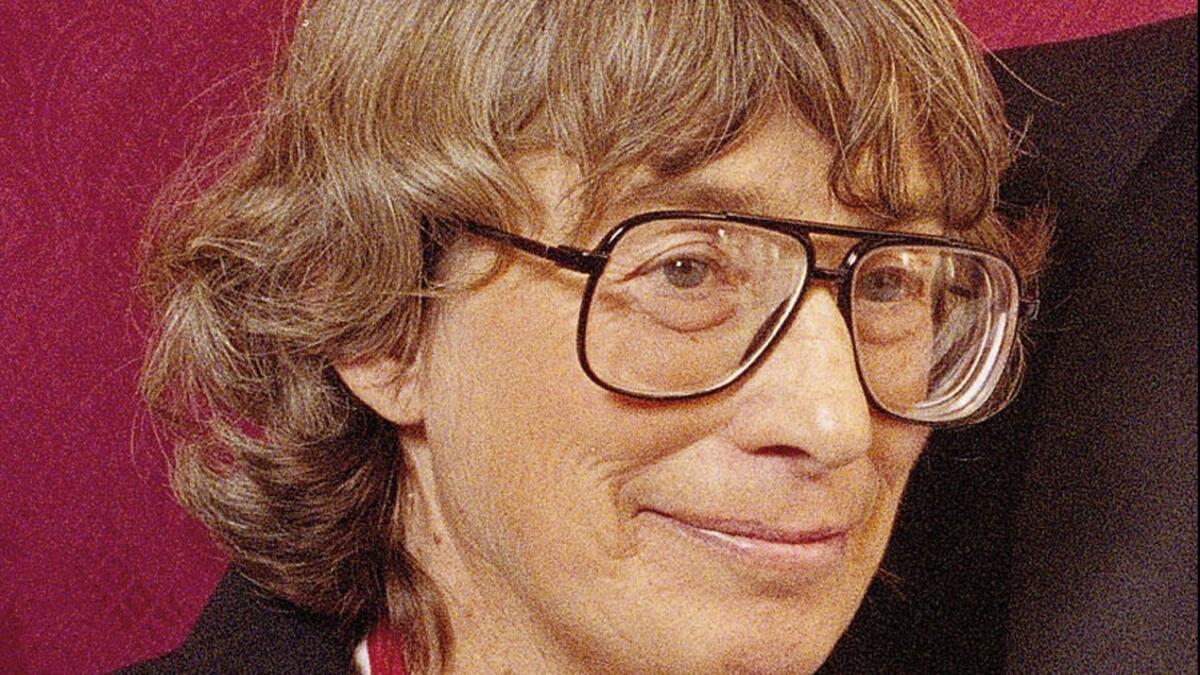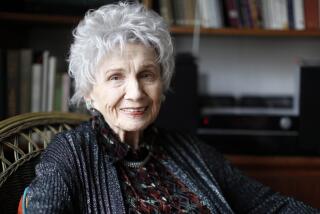Mary Oliver, Pulitzer Prize-winning poet, dies at 83

- Share via
Reporting from New York — Mary Oliver, the Pulitzer Prize-winning poet whose work focused on spirituality, nature and New England, died of cancer on Thursday in Florida, NPR reports. She was 83.
Oliver, one of the country’s most popular poets, was born in Ohio in 1935. She published her first collection, “No Voyage and Other Poems,” in 1963. Dozens of other books would follow, including “American Primitive,” which won the Pulitzer Prize in 1984, and “New and Selected Poems,” which took home the National Book Award in 1992.
Oliver spent much of her life in New England, which forms the setting of many of her poems. She moved to Florida after the death of her partner, Molly Malone Cook, in 2005.
In addition to nature, her poetry focused on spirituality, especially in her later years. In a 2012 interview with NPR, she discussed religion, saying, “I think one thing is that prayer has become more useful, interesting, fruitful, and ... almost involuntary in my life. And when I talk about prayer, I mean really ... what Rumi says in that wonderful line, ‘there are hundreds of ways to kneel and kiss the ground.’ I’m not theological, specifically, I might pick a flower for Shiva as well as say the hundredth [psalm].”
In a 1987 review of Oliver’s “Dream Work” for The Times, Holly Prado wrote that Oliver’s poems “fulfill the demand of lyric poetry by being short, passionate, charged with emotion and its necessary companion, thought.”
“The music in Oliver’s writing is unmistakable,” Prado wrote. “Her poetry can be read as the best of the real lyrics we have these days, and it’s no surprise that she’s already won a Pulitzer Prize for it, as well as many other honors. ... This is muscular poetry, admirable for its maturity, never pat or condescending. Oliver obviously struggles, herself, and offers her experience as a mirror of human drama without assuming any poses.”
In a 2015 interview with On Being Project, Oliver discussed the power of poetry as well as her thoughts on mortality. “I believe poetry — it is a convivial and kind of, I mean, it’s very old. It’s very sacred. It’s very — wishes for a community. ... That’s why, when you write a poem, you write it for anybody and everybody.
“Everything is mortal,” Oliver said. “It dies. But its parts don’t die. Its parts become something else. And we know that when we bury a dog in the garden. And with a rose bush on top of it. We know that there is replenishment. And that’s pretty amazing.”
Oliver reflected on death and mortality frequently in her work, including in her 1992 poem “When Death Comes.” Here is a portion of that work:
More to Read
Start your day right
Sign up for Essential California for the L.A. Times biggest news, features and recommendations in your inbox six days a week.
You may occasionally receive promotional content from the Los Angeles Times.






